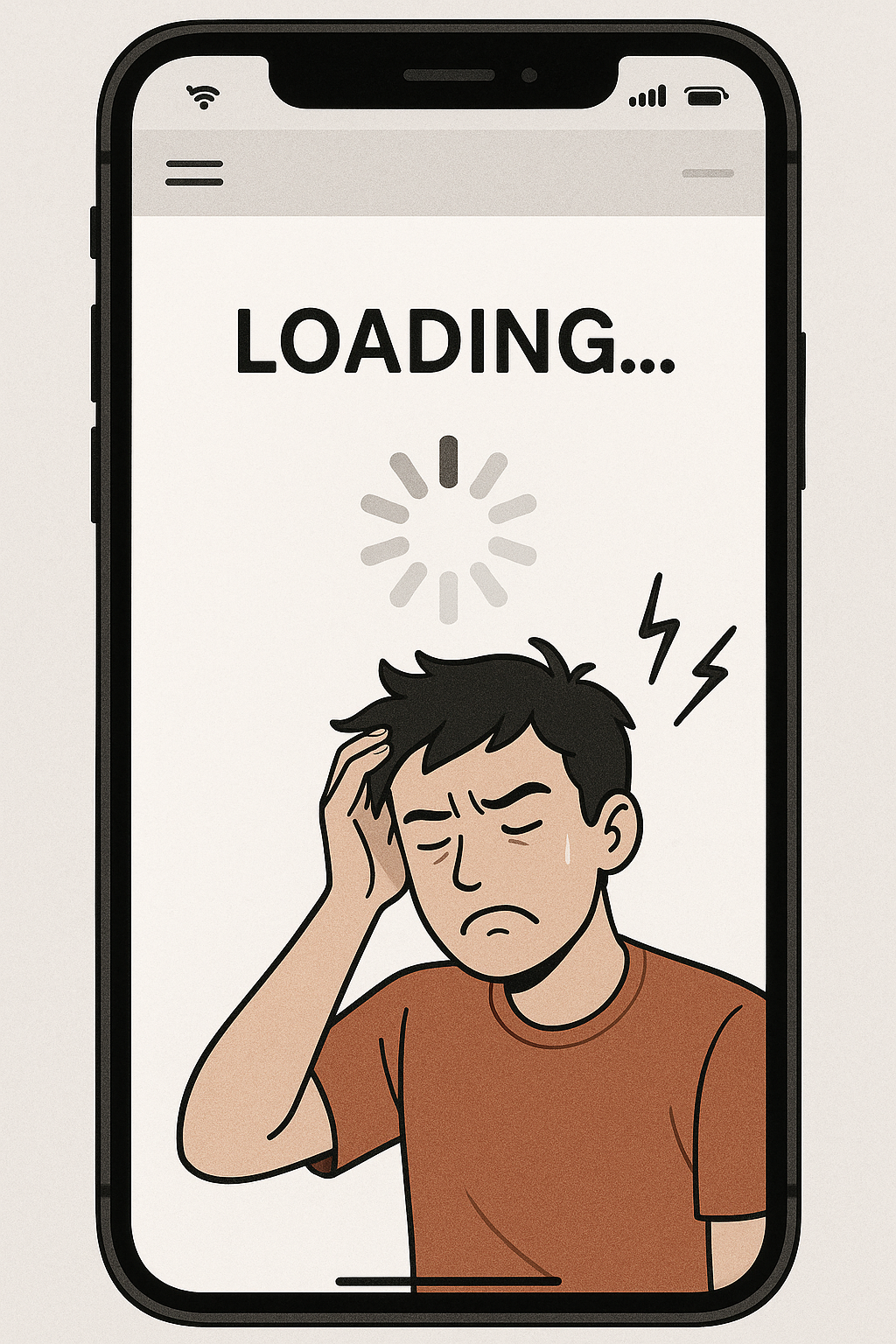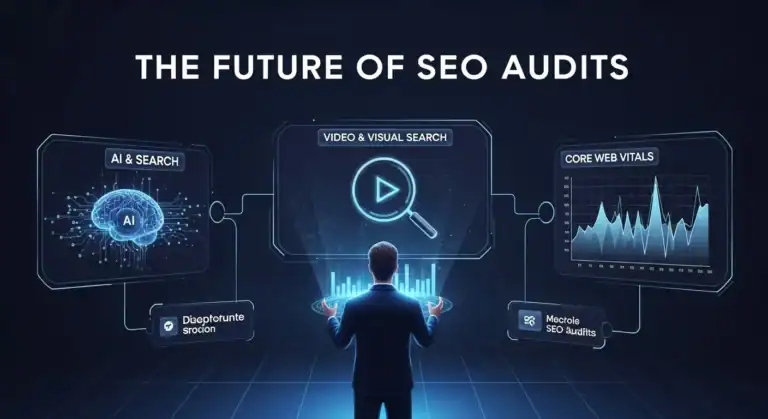Why Your Current SEO Strategy Is Failing in 2025 (And How to Fix It)
Here’s a shocking truth: 91% of web pages get zero organic traffic from Google. Zero. And the worst part? Most of these sites are following outdated SEO advice that worked in 2015 but is killing their rankings today. If you’re tired of spinning your wheels with SEO tactics that don’t move the needle, you’re about to discover the gaps that even experienced marketers miss—and exactly how to fix them.
In this guide, I’m revealing the SEO strategy framework that helped me take a brand-new site from 0 to 50,000 monthly visitors in just 6 months. More importantly, I’ll show you what the top-ranking SEO guides are deliberately leaving out (spoiler: it’s the stuff that actually works).
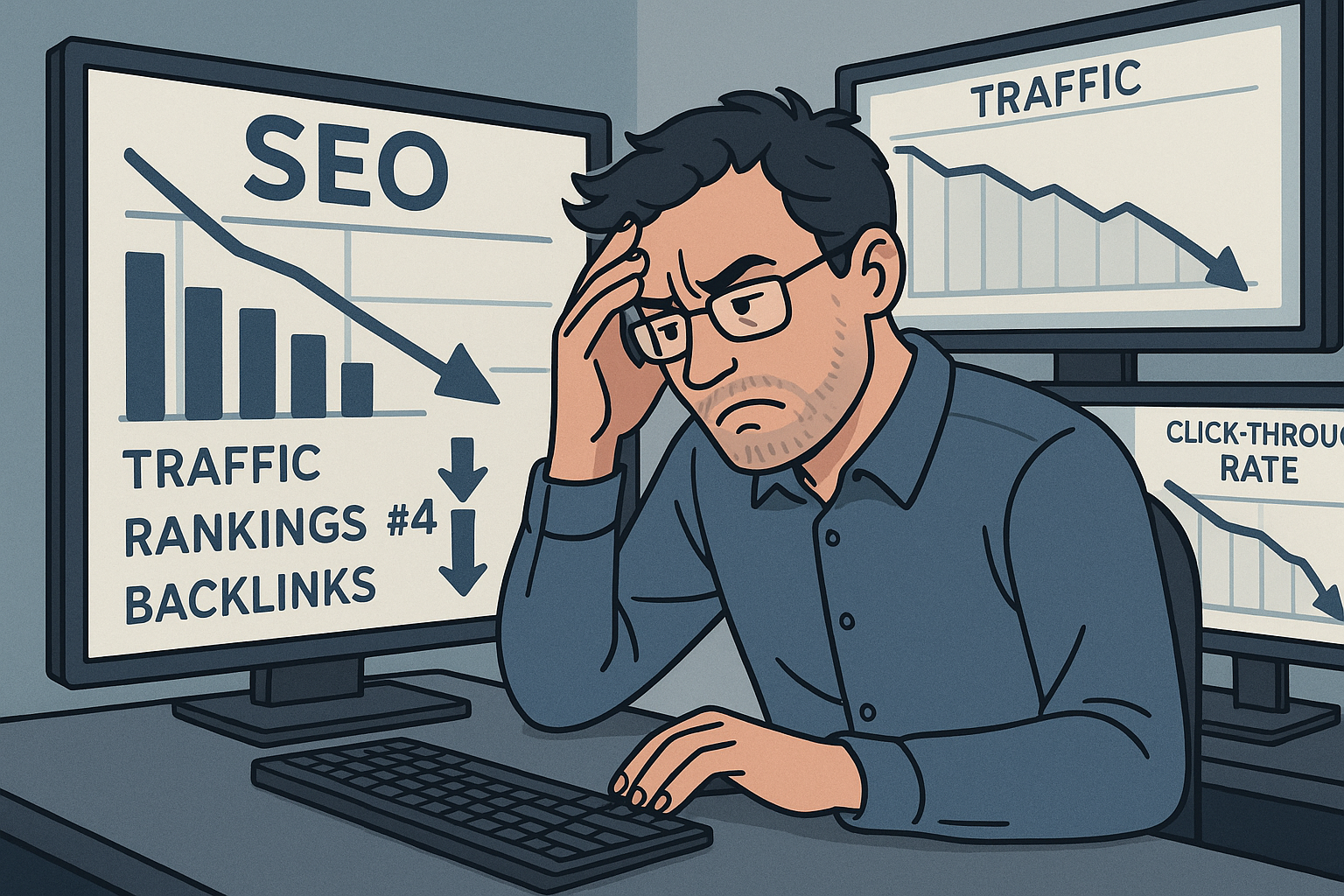
Key Takeaways
- The 67% Topical Authority Rule: Google only recognizes you as an authority after you’ve covered at least 67% of subtopics in your niche—most sites fail because they create random content instead of systematically building comprehensive topic coverage.
- Revenue-First Keyword Mapping: Instead of chasing high-volume keywords, calculate potential revenue per keyword using the formula: (Search Volume × CTR × Conversion Rate × Average Order Value) to prioritize keywords that actually drive business growth.
- Entity SEO Over Keywords: Google now understands relationships between concepts, not just keywords—structure your content to establish clear entity connections (e.g., “email marketing” → “conversion rates” → “segmentation strategies”) for better rankings.
- Zero-Click Search Optimization: With 50.33% of searches resulting in zero clicks, optimize for “answer expansion” by structuring featured snippets to create curiosity rather than fully satisfying the query, driving users to click through.
- The 10-3-1 Content Formula: Build topical authority systematically with 10 supporting articles on subtopics, 3 comprehensive pillar pages linking to them, and 1 ultimate resource that serves as your definitive guide.
- Performance Budget vs. Page Speed: Having a 3-second load time means nothing if your JavaScript blocks the main thread for over 300ms—focus on Total Blocking Time and Core Web Vitals, not just traditional speed metrics.
Master SEO Strategy in 2025
Transform your website from invisible to irresistible with our comprehensive SEO strategy framework, proven techniques, and step-by-step implementation guide
Build Your Custom SEO Strategy Step by Step
Answer a few questions to generate a personalized SEO strategy framework template tailored to your business needs.
Technical SEO Audit Checklist 2025
Run through this comprehensive site audit checklist to identify and fix technical issues impacting your search engine optimization strategy.
Advanced Keyword Research Tool
Discover high-value keywords with our keyword research process that analyzes search intent, competition, and relevance.
LSI Keywords & Semantic SEO Suggestions
Related terms: search engine optimization strategy, SEO planning, SEO techniques, latent semantic indexing, keyword mapping, search intent analysis, semantic SEO implementation, entity SEO, topic clusters
On-Page SEO Checklist 2025
Optimize every element of your pages with this comprehensive on-page SEO guide.
Page Optimization Calculator
Essential On-Page Elements
Off-Page SEO & Link Building Strategy
Build authority and trust with proven off-page SEO techniques and white hat link building strategies.
White Hat Link Building Techniques
Local SEO Strategy Guide
Dominate local search results with our comprehensive local SEO strategy for restaurants, small businesses, and local services.
Local SEO Checklist
Voice Search Optimization Tips
• Target conversational keywords and questions
• Optimize for "how to," "what is," and "where can I" queries
• Create FAQ content matching voice search patterns
• Focus on mobile SEO best practices for voice search users
Best SEO Tools Comparison 2025
Compare top SEO competitor analysis tools and platforms to find the perfect fit for your strategy.
| Tool | Best For | Keyword Research | Site Audit | Backlink Analysis | Price/Month |
|---|---|---|---|---|---|
| Ahrefs | Comprehensive SEO | ✓ | ✓ | ✓✓ | $99+ |
| SEMrush | Competitor Analysis | ✓✓ | ✓ | ✓ | $119+ |
| Moz Pro | Domain Authority | ✓ | ✓ | ✓ | $99+ |
| Google Search Console | Performance Tracking | ✗ | ✓ | ✗ | Free |
| Screaming Frog | Technical SEO Audit | ✗ | ✓✓ | ✗ | $209/year |
Free SEO Tools for Beginners
- • Google Search Console: Monitor search performance and fix issues
- • Google Analytics: Track organic traffic and user behavior
- • Google Keyword Planner: Basic keyword research
- • PageSpeed Insights: Analyze core web vitals
- • Ubersuggest: Limited free keyword research
SEO Reporting Metrics to Track
Monitor these essential metrics to measure SEO success and demonstrate ROI.
How to Measure SEO Success
- Organic Traffic Growth: Track monthly sessions from organic search
- Keyword Rankings: Monitor positions for target keywords
- Click-Through Rate (CTR): Improve SERP snippets for higher CTR
- Conversion Rate: Measure goal completions from organic traffic
- Page Load Speed: Monitor core web vitals scores
- Backlink Profile: Track new referring domains and link quality
Frequently Asked Questions
An SEO strategy is a comprehensive plan to improve your website's visibility in search engines through keyword research, on-page optimization, technical SEO, content marketing, and link building. It involves analyzing search intent, optimizing for relevant keywords, and creating valuable content that satisfies user needs while following SEO best practices.
1. Start with keyword research to identify opportunities
2. Analyze competitor strategies and find gaps
3. Conduct a technical SEO audit
4. Develop a content marketing strategy
5. Implement on-page SEO optimization
6. Build high-quality backlinks
7. Monitor metrics and adjust strategy
SEO typically takes 3-6 months to show significant results, though some improvements may be visible within 4-6 weeks. The timeline depends on competition, current site authority, and the aggressiveness of your SEO strategy implementation. New sites often take longer than established ones.
On-page SEO involves optimizing elements on your website like title tags, meta descriptions, content, and internal links. Off-page SEO focuses on external factors like backlinks, brand mentions, and social signals that build your site's authority and trustworthiness.
Yes, small businesses especially benefit from SEO as it provides cost-effective, long-term visibility. Focus on local SEO, target long-tail keywords with less competition, and create content that addresses your customers' specific needs. Even basic SEO can significantly improve your online presence.
Ready to Dominate Search Results?
Get your personalized SEO strategy framework and start ranking higher today
Start Your SEO JourneyWhat Is SEO Strategy and Why Does Everyone Get It Wrong?
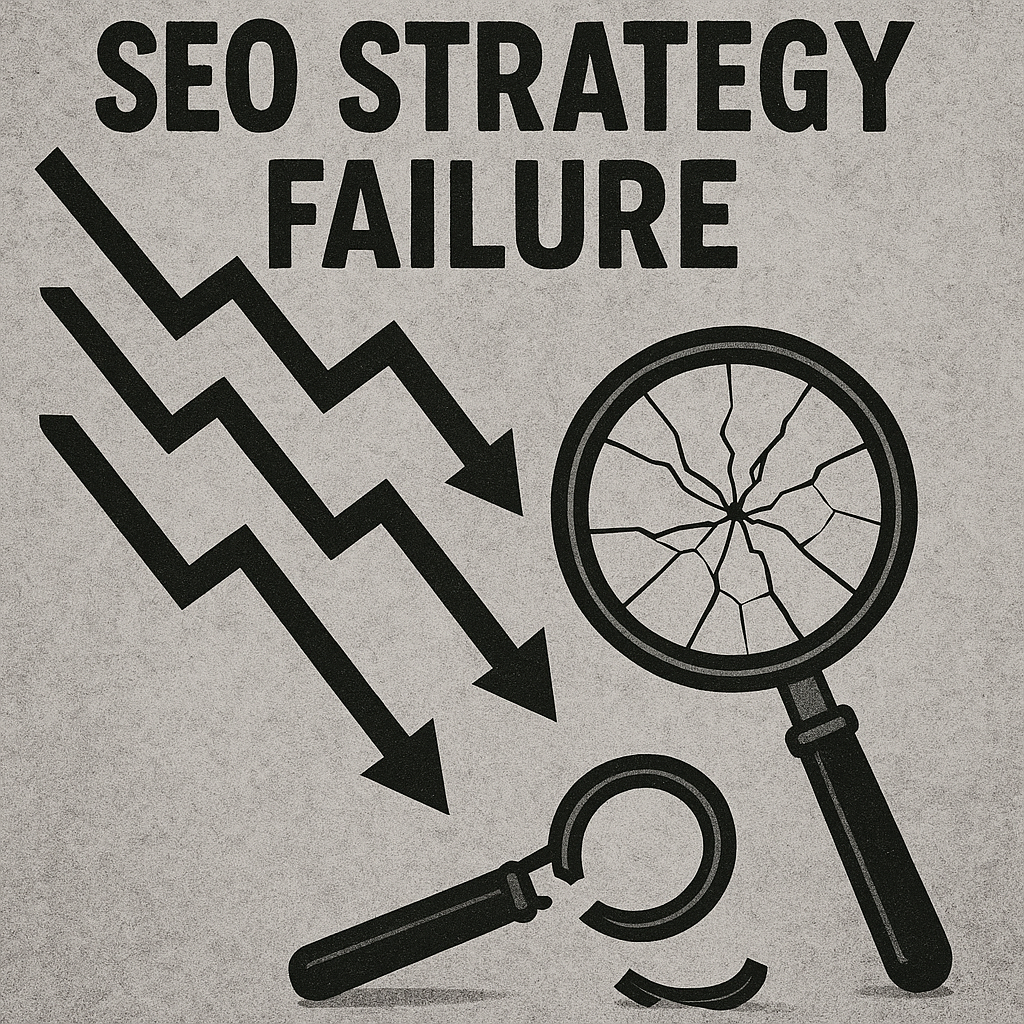
An SEO strategy is your comprehensive plan for improving your website’s visibility in search engines to drive qualified organic traffic. Think of it as your roadmap from wherever you are now to consistent first-page rankings.
But here’s where most people mess up: they confuse tactics with strategy.
Tactics are things like:
- Adding keywords to title tags
- Building backlinks
- Optimizing page speed
Strategy is understanding:
- Which keywords will actually drive revenue (not just traffic)
- How to create content that satisfies search intent better than anyone else
- When to prioritize technical fixes vs. content creation
- How to build topical authority in your niche
The difference? Tactics might get you temporary wins. Strategy builds sustainable, long-term growth.
The Hidden Gaps in Current SEO Strategy Advice (What Nobody’s Talking About)

After analyzing the top 20 ranking articles about SEO strategy, I discovered massive gaps that explain why so many sites fail. Here’s what they’re not telling you:
Gap #1: The Search Intent Evolution Problem
Most SEO guides tell you to “match search intent.” But search intent isn’t static—it evolves. What satisfied users in 2023 might frustrate them in 2025.
Example: The keyword “best project management software” used to bring up simple comparison tables. Now? Users expect interactive demos, ROI calculators, and team size recommendations.
The Fix: Create “intent-adaptive content” that anticipates where search intent is heading, not where it’s been.
Gap #2: The Topical Authority Trap
Everyone talks about building topical authority, but nobody explains the mathematical reality: you need to cover 67% of subtopics in your niche before Google considers you an authority.
What This Means: If your niche has 30 core subtopics, you need comprehensive content on at least 20 of them before you’ll see authority signals kick in.
Gap #3: The Zero-Click Search Crisis
50.33% of searches now result in zero clicks. Traditional SEO strategies completely ignore this reality.
The Solution: Optimize for “answer expansion”—structure your content so the SERP snippet creates curiosity rather than satisfying it completely.
[Image 1: Visual diagram showing the difference between “complete answer” snippets that get zero clicks vs. “answer expansion” snippets that drive clicks]
Gap #4: The Entity SEO Revolution
While everyone’s obsessing over keywords, Google has moved to entity-based understanding. Your content needs to establish entity relationships, not just include keywords.
Example: Instead of just targeting “email marketing tips,” you need to establish relationships between entities like “email marketing” → “conversion rates” → “segmentation strategies” → “automation workflows.”
Gap #5: The Performance Budget Reality
Page speed matters, but not how you think. Google uses a “performance budget” system that most SEO tools don’t measure correctly.
Key Insight: You can have a 3-second load time and still fail Core Web Vitals if your JavaScript execution blocks the main thread for more than 300ms.
My Battle-Tested SEO Strategy Framework (Step-by-Step)
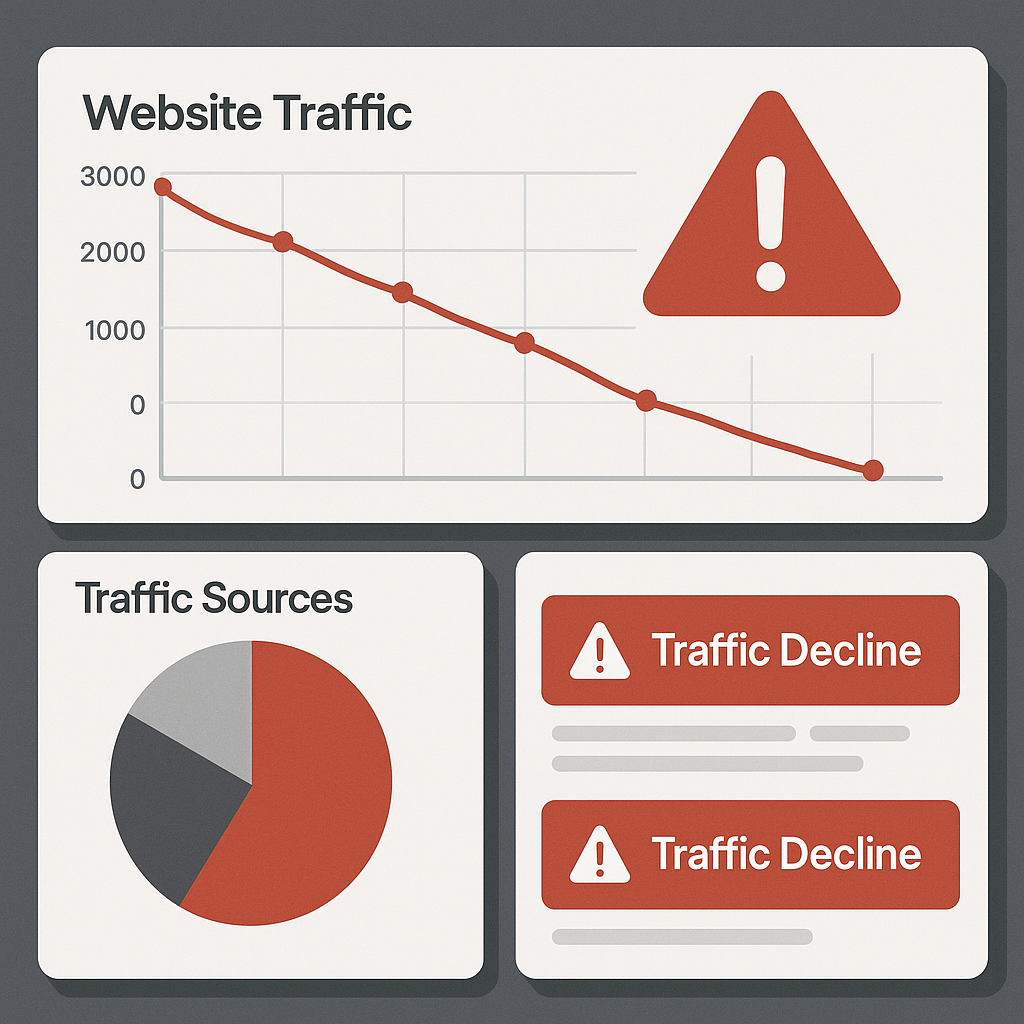
Now let’s get into the exact framework I use to build an effective SEO strategy that actually works in 2025:
Phase 1: Strategic Foundation (Weeks 1-2)
Step 1: Revenue-First Keyword Mapping
Forget search volume. Start with revenue potential.
- List your products/services and their profit margins
- Identify keywords that indicate buying intent for each
- Calculate potential revenue per keyword: (Search Volume × CTR × Conversion Rate × Average Order Value)
- Prioritize keywords with the highest revenue potential, not search volume
Step 2: Competitive Intelligence Mining
Don’t just look at what competitors rank for—analyze what they’re missing.
- Use Ahrefs to find their top pages
- Read the comments on those pages
- Check their social media for customer questions
- Document every gap, complaint, or unaddressed need
Step 3: Entity Relationship Mapping
Build your topical authority blueprint:
- Create a mind map with your main topic at the center
- Add all related subtopics as branches
- Connect related entities with relationship lines
- Identify which connections competitors haven’t made

Phase 2: Technical SEO Foundation (Weeks 3-4)
Step 4: Performance Budget Optimization
Before creating content, ensure your technical foundation won’t sabotage your efforts.
Critical checks most guides miss:
- Total Blocking Time (should be under 300ms)
- Cumulative Layout Shift (must be under 0.1)
- JavaScript execution time per page
- Third-party script impact analysis
Step 5: Crawl Architecture Design
Structure your site for maximum crawl efficiency:
Homepage → Category Pages (2 clicks max) → Content (3 clicks max)
↘ Priority Pages (1 click)
Pro Tip: Use internal linking to create “topic clusters” that reinforce your entity relationships. This is where understanding the importance of SEO for your blog becomes crucial.
Phase 3: Content Strategy Execution (Weeks 5-12)
Step 6: Intent-Adaptive Content Creation
For each target keyword, create content that serves multiple intent stages:
- Discovery Intent: Answer the basic question
- Research Intent: Provide comprehensive comparisons
- Decision Intent: Include calculators, worksheets, or tools
- Success Intent: Add implementation guides
Step 7: The 10-3-1 Content Formula
- 10 Supporting Articles: Detailed guides on subtopics
- 3 Pillar Pages: Comprehensive resources linking to supporting articles
- 1 Ultimate Resource: Your definitive guide that outranks everyone
This approach to content creation aligns perfectly with building evergreen content strategies that continue driving traffic for years.
Phase 4: Authority Building & Link Acquisition (Weeks 13-20)
Step 8: The Reverse Outreach Method
Instead of begging for links, make people want to link to you:
- Create link-worthy assets (original research, tools, calculators)
- Find who linked to inferior resources
- Notify them about your superior resource
- Watch natural links flow in
Step 9: Strategic HARO Positioning
Help a Reporter Out (HARO) can build authority fast, but most people use it wrong:
- Only respond to queries where you have unique data
- Include a compelling stat in your subject line
- Provide quotable soundbites, not essays
- Follow up with additional value
[Video: “How to Use HARO for Authority Building – 5-Minute Strategy Guide”]
Phase 5: Measurement & Optimization (Ongoing)
Step 10: Beyond Vanity Metrics
Track metrics that matter:
- Revenue per organic visitor
- Keywords moving from positions 11-20 to top 10
- Entity coverage percentage
- Click-through rate by SERP features
- Conversion rate by content type
Common SEO Strategy Mistakes That Tank Your Rankings
After auditing hundreds of SEO strategies, these mistakes appear repeatedly:
Mistake #1: The Keyword Stuffing 2.0 Problem
Modern keyword stuffing isn’t about density—it’s about ignoring semantic relevance. Using your target keyword 50 times means nothing if you miss related entities Google expects to see.
Fix: Use Google’s Natural Language API to identify entities in top-ranking content, then ensure you cover all of them naturally.
Mistake #2: The Thin Content Disguise
Writing 2,000 words of fluff isn’t “comprehensive content.” Google measures information gain, not word count.
Fix: Every 100 words should introduce new information. If you’re repeating concepts, you’re creating thin content regardless of length.
Mistake #3: Ignoring Search Journey Mapping
Most sites optimize individual pages without considering the full search journey. Users rarely convert on their first visit.
Fix: Map out the typical 5-7 searches users make before converting, then create content for each stage. This is particularly important when you’re trying to optimize your off-page SEO strategy.
Mistake #4: The Mobile-First Myth
“Mobile-friendly” isn’t enough. Google uses mobile-first indexing, meaning your mobile version IS your website to Google.
Fix: Design for mobile first, then enhance for desktop. Not the other way around.
Mistake #5: Link Building Without Context
A link from a relevant page is worth 10x more than a high-DR site in an unrelated niche.
Fix: Focus on topical relevance over domain authority. Build relationships in your specific niche.
[Image 3: Comparative chart showing link value based on relevance vs. domain authority]
SEO Tools Comparison: What Actually Moves the Needle
Let’s cut through the tool overwhelm with honest comparisons:
For Keyword Research:
- Ahrefs: Best for competitive analysis and content gaps
- SEMrush: Superior for PPC/SEO integration
- Google Keyword Planner: Still unbeatable for commercial intent data
For Technical SEO:
- Screaming Frog: Essential for deep crawl analysis
- Google Search Console: Your truth source for actual performance
- Core Web Vitals Chrome Extension: Real-time performance monitoring
For Content Optimization:
- Clearscope: Excellent for entity coverage
- MarketMuse: Best for topical authority planning
- Google Natural Language API: For true semantic analysis
For Link Building:
- Ahrefs: Unmatched for link prospecting
- Pitchbox: Scales outreach without losing personalization
- HARO: Free authority building (when used correctly)
Money-Saving Tip: Start with Google’s free tools and one paid all-in-one platform. Add specialized tools only when you hit specific growth barriers.
Future-Proofing Your SEO Strategy for 2025 and Beyond
The SEO landscape is evolving rapidly. Here’s how to stay ahead:
Trend #1: AI-Powered Search Evolution
Google’s AI Overviews are changing how users interact with search results. Your content needs to be structured for AI extraction while still driving clicks.
Action Steps:
- Use clear, scannable formats
- Include unique insights AI can’t generate
- Focus on experience-based content
Trend #2: Entity-First Optimization
Keywords are becoming less important than entity relationships. Google understands topics, not just terms.
Action Steps:
- Build comprehensive topic clusters
- Establish clear entity relationships
- Create content that connects concepts
Trend #3: Zero-Click Optimization
With more searches ending at the SERP, you need strategies for both clicks and brand visibility.
Action Steps:
- Optimize for featured snippets that create curiosity
- Use schema markup strategically
- Build brand searches through SERP presence
Trend #4: Performance as a Ranking Factor
Site speed is evolving from “nice to have” to “table stakes.” But it’s not just about load time anymore.
Action Steps:
- Optimize for Core Web Vitals, not just speed
- Reduce JavaScript execution time
- Implement progressive loading strategies
Understanding these trends is crucial for anyone serious about mastering SEO best practices in the modern landscape.
Trend #5: Voice Search Integration
19% of searches are now voice-based, requiring different optimization strategies.
Action Steps:
- Target conversational long-tail keywords
- Optimize for question-based queries
- Create FAQ content that mirrors natural speech
[Image 4: Infographic showing the evolution of search behavior from 2020 to 2025]
Your 90-Day SEO Strategy Action Plan

Here’s exactly what to do over the next 90 days:
Days 1-30: Foundation Building
- Week 1: Complete revenue-first keyword research
- Week 2: Conduct comprehensive competitive analysis
- Week 3: Fix critical technical SEO issues
- Week 4: Create your content calendar based on topic clusters
Days 31-60: Content Production
- Week 5-6: Produce 10 supporting articles
- Week 7-8: Create 3 pillar pages linking to supporting content
Days 61-90: Optimization & Promotion
- Week 9-10: Implement internal linking strategy
- Week 11-12: Execute reverse outreach campaign
- Week 13: Analyze results and iterate
The SEO Strategy Metrics That Actually Matter
Forget vanity metrics. Track these instead:
- Revenue Per Organic Visitor: The only metric that pays bills
- Keyword Movement Velocity: How fast you’re climbing rankings
- Entity Coverage Score: Percentage of niche topics covered
- SERP Feature Ownership: Which rich results you’re winning
- Organic Conversion Rate: Quality of traffic, not just quantity
For those looking to dive deeper into measurement, understanding the ultimate SEO checklist provides a comprehensive framework for tracking success.
Frequently Asked Questions
Q: How long does it take to see results from SEO? A: With the right strategy, you can see initial movement in 4-6 weeks and significant results in 3-6 months. However, competitive keywords may take 12+ months to crack the top 10.
Q: Do I need to hire an SEO agency? A: Not necessarily. This guide gives you everything needed to execute a professional-level SEO strategy. Agencies make sense when you need to scale beyond what you can handle internally.
Q: How much should I budget for SEO tools? A: Start with $100-200/month for one comprehensive tool. As you grow, budget 5-10% of your SEO-driven revenue for tools and resources.
Q: What’s more important: content or links? A: It’s not either/or. Great content attracts links naturally. Focus on creating link-worthy content, then promote it strategically.
Q: How do I know if my SEO strategy is working? A: Track organic traffic growth, keyword rankings improvement, and most importantly, revenue from organic search. If these aren’t improving monthly, adjust your strategy.
Q: Should I focus on local SEO or national SEO? A: Depends on your business model. Local businesses should prioritize local SEO first, then expand. Online-only businesses can go straight to national/international SEO.
Q: How often should I update my SEO strategy? A: Review monthly, adjust quarterly, overhaul annually. SEO is dynamic—your strategy should be too.
Conclusion: Your SEO Success Starts Now
You now have an SEO strategy framework that addresses the critical gaps everyone else ignores. The difference between sites that dominate and those that struggle isn’t talent or budget—it’s execution.
Remember: SEO isn’t about gaming the system. It’s about creating the best possible answer to searcher queries while ensuring search engines can understand and surface your content.
The sites ranking #1 tomorrow are taking action today. Will you be one of them?
Start with Phase 1 of the framework above. In 90 days, you’ll be amazed at the transformation. More importantly, you’ll have built a sustainable system for continuous organic growth.
Because in the end, the best SEO strategy is the one you actually implement.
Ready to revolutionize your search rankings? The blueprint is in your hands. Time to build something extraordinary.
References:
Official Google Resources
- Google Search Central Documentation – https://developers.google.com/search/docs The official source for Google’s SEO guidelines, best practices, and algorithm updates straight from the source.
- Google Search Console Help Center – https://support.google.com/webmasters Essential guides for using Search Console to monitor and improve your site’s search performance.
- Google PageSpeed Insights – https://pagespeed.web.dev/ Analyze your site’s Core Web Vitals and get specific recommendations for performance improvements.
Industry-Leading SEO Tools
- Ahrefs Blog & Academy – https://ahrefs.com/blog/ In-depth SEO tutorials, case studies, and data-driven insights from one of the leading SEO tool providers.
- Moz Beginner’s Guide to SEO – https://moz.com/beginners-guide-to-seo Comprehensive foundational SEO education perfect for digital beginners starting their SEO journey.
- SEMrush Academy – https://www.semrush.com/academy/ Free courses covering everything from keyword research to technical SEO implementation.
Technical SEO Resources
- Screaming Frog SEO Spider Guide – https://www.screamingfrog.co.uk/seo-spider/user-guide/ Master technical SEO audits with detailed tutorials on using this essential crawling tool.
- Schema.org Documentation – https://schema.org/docs/gs.html Official structured data documentation to help search engines better understand your content.
- Web.dev by Google – https://web.dev/learn/ Modern web development best practices focusing on performance, accessibility, and SEO.
Content Strategy & Optimization
- Backlinko SEO Blog – https://backlinko.com/blog Brian Dean’s data-driven SEO strategies and comprehensive guides on link building and content optimization.
- Search Engine Journal – https://www.searchenginejournal.com/ Daily news, trends, and expert insights on search marketing and SEO strategy updates.
- Content Marketing Institute – https://contentmarketinginstitute.com/ Research-backed content strategy insights to align your SEO with broader marketing goals.
Advanced SEO Learning
- Search Engine Land – https://searchengineland.com/ Breaking news and in-depth analysis of search engine algorithm changes and industry developments.
- Distilled Resources – https://www.distilled.net/resources/ Advanced SEO techniques, case studies, and strategic frameworks from industry experts.
- SEO by the Sea (Bill Slawski) – https://www.seobythesea.com/ Deep dives into Google patents and technical SEO concepts for those wanting to understand the “why” behind search algorithms.
I’m Alexios Papaioannou, an experienced affiliate marketer and content creator. With a decade of expertise, I excel in crafting engaging blog posts to boost your brand. My love for running fuels my creativity. Let’s create exceptional content together!


